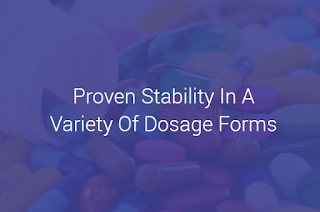Can Probiotics Help You With Depression?

Probiotics have become famous in recent years. You might also eat a lot of probiotic foods like yogurt or kimchi, or take a daily probiotic supplement that can help you to reap all their potential benefits.
The human body, especially the gut or the digestive system, contains natural probiotics or “good bacteria”. There’s a balance maintained in your body in between helpful bacteria or probiotics and harmful bacteria. Disruption in this balance can contribute to a wide range of harmful diseases.
In recent years, experts have been busy with a special group of probiotics which are known as psychobiotics. These bacteria are believed to help treat a range of mental health conditions including depression.
How do they work?
You must be wondering how bacteria that are known for promoting digestive health can impact mental health. Many experts believe that there’s a connection between your gut and your brain. It is known as the gut-brain axis (GBA). It is linked to your central nervous system that includes your brain and spinal cord to your GI (gastrointestinal tract).
Probiotics are coming up as a promising potential treatment for depression and other mental health conditions.
According to a few probiotics manufacturers, various health benefits are linked to the consumption of probiotics. There are many related side effects that can affect a very small percentage of people. Let’s check out some of the side effects which can be caused because of probiotics:
Can cause unpleasant digestive symptoms:
An increase in gas and bloating are some of the most commonly reported reactions found in people who consume bacteria-based probiotic supplements. People who regularly consume yeast-based probiotics can sometimes experience constipation and increased thirst. To reduce these effects, you can start with a low dose of probiotics, slowly increasing, and help your body to adjust.
Probiotic foods can trigger headaches
Foods like sauerkraut, yogurt, and kimchi that are rich in protein contain biogenic amines. Amines are a substance that forms when foods age or get fermented by bacteria. Some of the most common types of amines found in foods include histamine, tryptamine, tyramine, and phenylethylamine. They can stimulate the central nervous system, increase and decrease the blood flow.
Can increase infection risk
In a few cases, the bacteria or yeasts found in probiotics can enter the bloodstream causing infections. They also pose the greatest risk to people who have suppressed immune systems or those who have undergone recent surgeries.
Dedicated bacillus facilities:
Sanzyme Biologics is known as the leader in manufacturing dedicated bacillus facilities. It helps in marketing microbial products and contribute to an end-to-end production with a decade of technological improvement that is reliable. It is even a long-term choice for the supply of probiotics in supplements, food, and pharmaceuticals.



Comments
Post a Comment